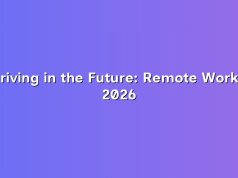Creativity can create minor yet visible improvements, and often it can cause destructive and fundamental changes. So often, individuals focus on redesigning the entire system and ignore the inspiration in the little innovations.
Employers need to urge creative thinking to make sure more vital problem solving skills and better capability to react to constant changes. Innovative companies are much better able to satisfy their strategic goals, and also creative teams, as well as people, are a lot more profitable as well as effective.
Are tight resources an asset or a restriction to creative thinking?
Unfortunately, fostering creative thinking in the office can take time and money, both in regular short supply.
Leaders can set due dates to develop the senses as well as produce a sense of challenge. However, very tight targets might overburden people.
Creative thinking can sometimes be attained on a tight budget plan– and in some cases also on a zero budget. In some instances, spending would be required to support the team entirely.
AS AN ORGANISATION: provide a safe environment for increased creativity
To scale up the creativity and establish it more firmly and also swiftly into a company’s culture, the creative process needs to be supported by the entire organization, not solely a manager or leader.
Collaboration and sharing of details lead to an increase in confidence, inspiration, and innovative expertise.
A politically charged environment suppresses creative thinking; workers will be afraid for their security if they articulate an innovative idea that challenges the status quo. Conversely, senior leaders who calm distressed political waters will create safe shallows for their teams to engage in the liberty of creative thought.
Assign diverse workgroups to maximize productive creativity
A successful creative job isn’t a mixture of ideas that never amount to anything. The outcome needs to be concrete, completed, and in line with predetermined objectives.
Select an innovative task force that integrates efficiency with a diversity of perspectives as well as backgrounds. You’re not seeking mayhem, but you’re not looking for individuals that all think the same way, believe the same thing and plod through the work to produce a practical, however unexciting result with no innovative advancement. Your experience and intuition as a leader will undoubtedly be called for to obtain the ideal balance.
Take into consideration the advantages of a structured open discussion forum.
Leaders might wish to have a suggestions box in the workplace for employees to make anonymous suggestions. However, modern technology indicates the office can network in several ways. For example, a Slack or Whatsapp team can help employees share recommendations in an informal manner conducive to fear-free creativity.
The future of work means differently to each one of us: some see it as more technology and less human, some expect a more humanized space and some others imagine it to be a no-workplace world. In our journey to unwrap FutureofWork, Work2.org invites leaders from various industries to help our global community to understand what the posterity holds for workers, leaders and organizations. While our team is busy at bringing this fresh ideas directly to you, we would appreciate our community help in making it possible. If you like what you’ve read, we would appreciate if you could spread the word within your circles and let us know if anything you want us to bring into this #FutureOfWork conversation.




























